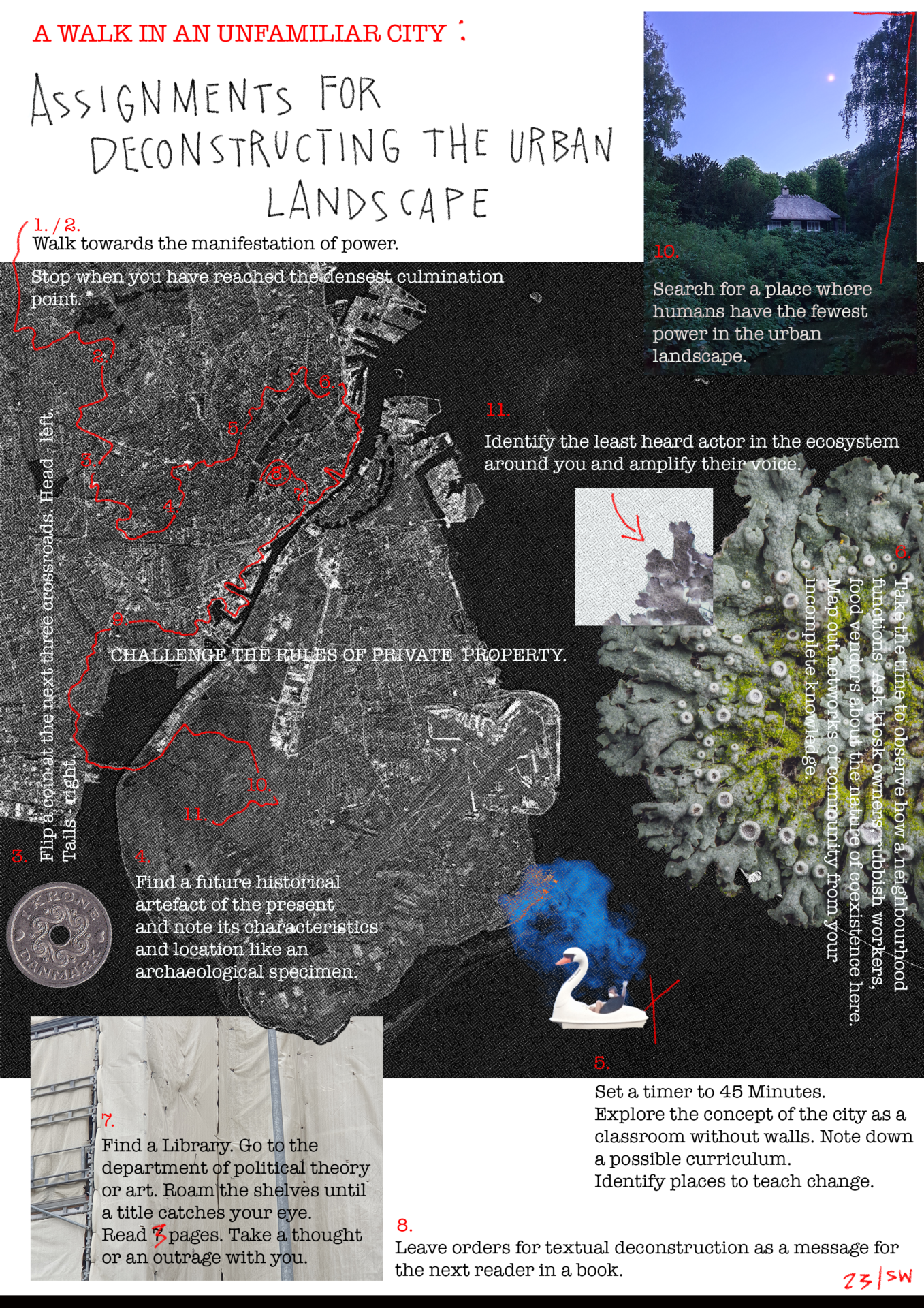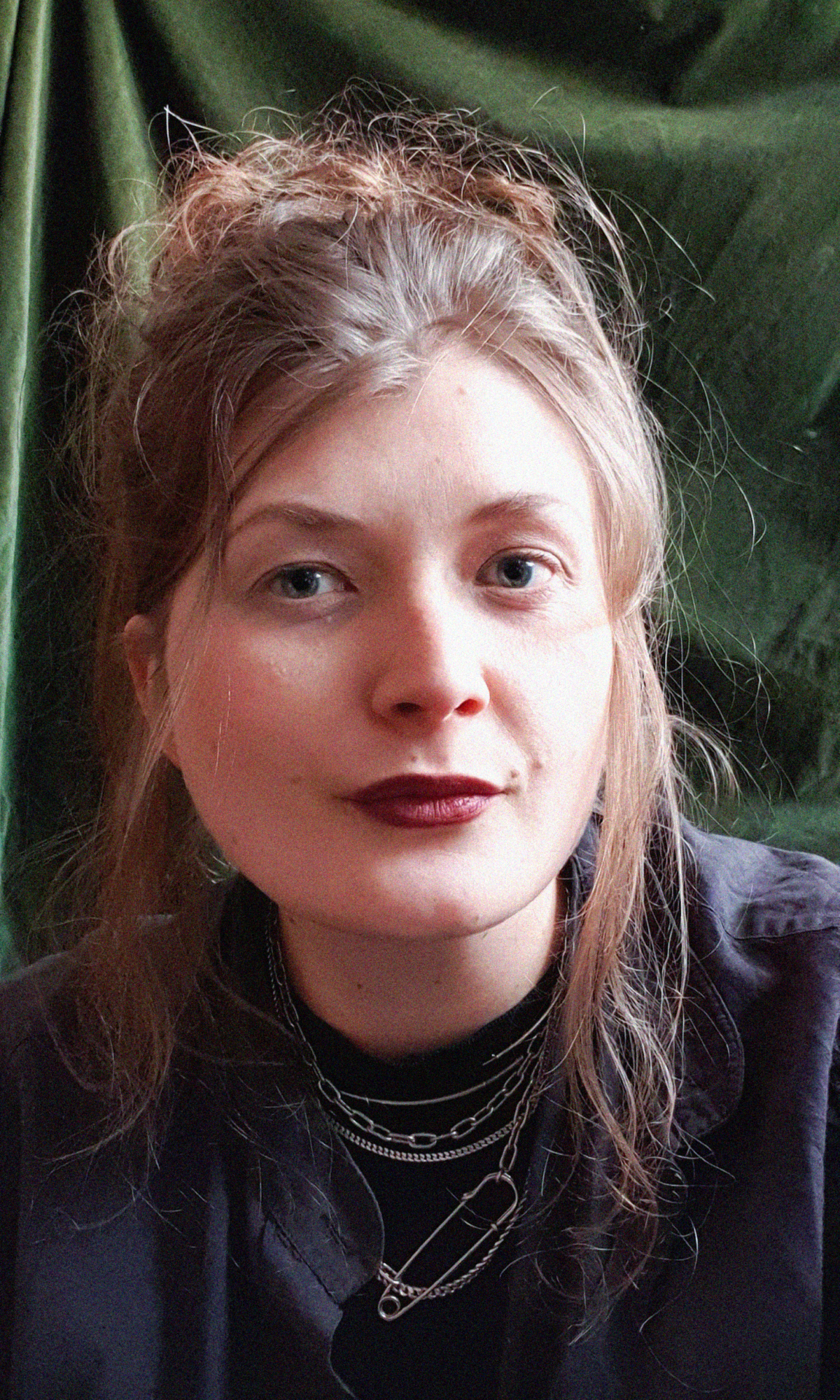Sarah Wenzinger travelled to Copenhagen
Berlin’s second artist Marc Buyny travelled to Budapest
Artist’s Statement
The topic of “Education Reform” in Copenhagen resonates with the questions and challenges that have emerged in my work around artistic research and educational strategies within critical urbanism and the climate catastrophe. Within rethinking our interaction with materials and nonhuman organisms, the responsibility of activists, artists, and educators has become a point of friction with hierarchically organised institutions when working within a system that prioritises preserving current structures over issues of distributive justice, mental health, and the environment. I would like to explore these points of friction further and connect the theme with a radical education and research approach based on historical resistance within education as a tool for liberation and empowerment in Copenhagen.
I am interested in engaging in a conversation about: Who has the power to collect knowledge? For whom is knowledge designed? What slips through our grasp because we lack the tools to record it? How can we teach disruption within a system of oppression? How can artistic and educational confrontation challenge dominant ideologies, foster critical thinking, and intellectual independence? How can we reflect on our context and privileges within the system in which we learn, teach, and work? How can we address the role of space, its accessibility, and design within shared spaces and institutions? How can one navigate working within neoliberal structures that utilise methods of social practice and participation in the arts but fail to act upon the results of discussions or projects involving participants? How can we address the challenge of educating ourselves to equip ourselves and others to deconstruct the power structures within which we work?
Artist’s Biography
Sarah Wenzinger is a Berlin-based artist, activist researcher, dramaturge, and educator who studied theatre directing at the Ernst Busch Academy of Dramatic Arts. Her work centres around creating digital and analog spaces that encourage reflection and rethinking of complex contemporary concerns. She works both alone and in collectives and has developed projects for institutions such as Haus der Kulturen der Welt, the Berlin Biennial X, the Staatliche Museen zu Berlin, the NRW Forum Düsseldorf, and the Bauhaus Archiv e.V.
In 2019, she was invited as an artist in residence at the Goethe Institute Kigali in Rwanda. She takes a subject-centred approach in her work using various formats such as site-specific installations, performances, walks, text, video, ceramics, interaction, and radical action assignments. Her exploration of social structures of power, perspective, and community is informed by a socially engaged praxis and a queer feminist lens. As an activist researcher and mediator, she has published two collections of strategies and methods for political artistic engagement with urban space and the climate catastrophe. These collections, rooted in the perspective of radical education, translate concepts from critical urbanism and the new materialism into assignments and strategies of artistic research to challenge dominant narratives and ideologies through critical reflection and self-reflexivity. Since 2019, she has worked on the concept of the social prepper in an open research collaboration with allapopp. This solidarity-based counter-proposal to apocalyptic narratives of fear focuses on reconnecting with historical resistance, facing climate grief, sharing knowledge, learning from other organisms, enduring the uncanny, and meditating on active hope.
More info
Artist’s website
Visual Gesture
Each artist on the residency programme was asked to create a simple visual gesture for potential inclusion in the ULYSSES European Odyssey book. An image that reflected their visit to another partner city, a moment which stayed with them, something quite simple, even symbolic.
All images are copyright of the individual artists.




